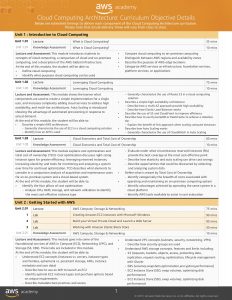 The class will be held on Thursdays 6:00-9:00 (January 24 will be the first day of instructions), in Sierra Hall 1131.
The class will be held on Thursdays 6:00-9:00 (January 24 will be the first day of instructions), in Sierra Hall 1131.
Since this is a lab-based course, there are only 24 seats.
Professor – Computer Science at CSU Channel Islands
On November 6, 2018, at 7:30am, I am giving a talk to the Regional Defense Partnership for the 21st Century (RDP-21) on Computer Science at CI. Here is the meeting location.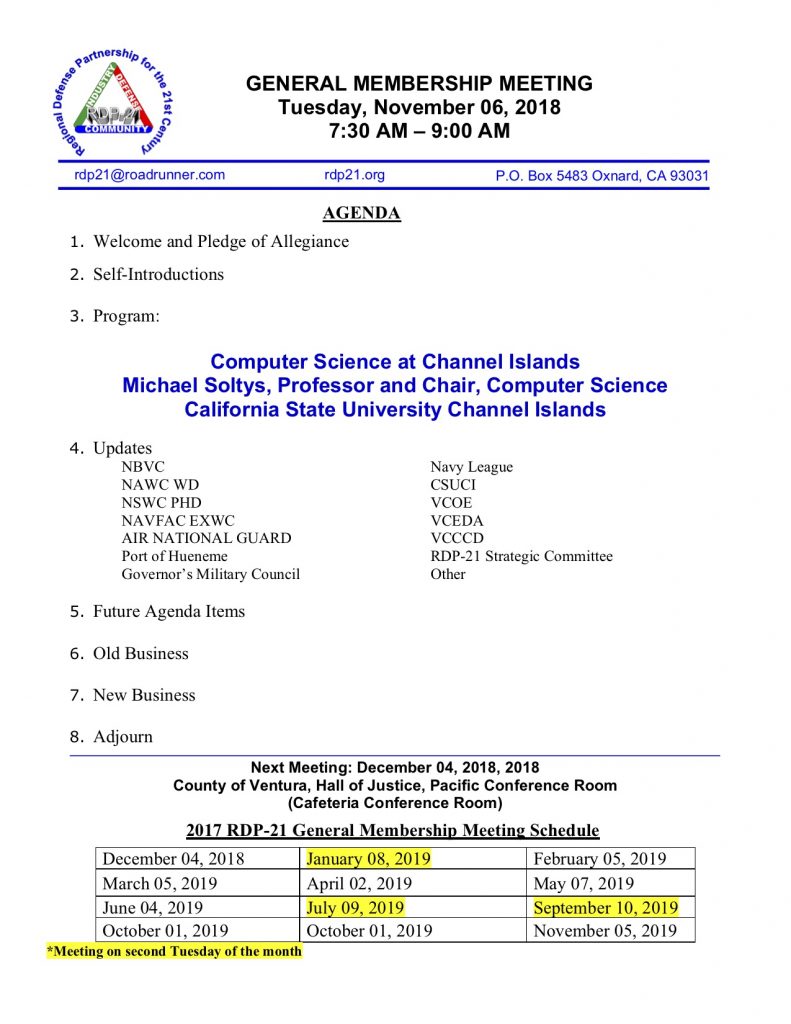
It was a pleasure to speak at the AWS/CSU Research in the Cloud series. By nature I am not a strong promoter of any technology, and the browser, OS or editor “wars” frankly bore me; I sometimes use a “lesser” technology because it happens to be more convenient, or because I don’t have the time to learn a “better” technology, or many other good reasons.
However, as a researcher and teacher I am absolutely thrilled with what AWS has to offer. I regularly give tours of our computer labs at CSU CI (to local companies, prospective graduate students, CSU trustees, fundraising prospects, etc.), and I explain that three things make it possible for a relatively small and unknown campus like ours to compete in scientific & engineering output in the national and international arena:
Interested in meeting experts at the intersection of Artificial Intelligence, Natural Language Processing & Machine Learning, and landing a job or internship with the company at the forefront of it all?
IBM & Uncubed are bringing together students looking for full-time opportunities in 2019 to learn about the future of AI: from reducing environmental pollution and predicting weather patterns to protecting public safety and personalizing education practices.
Events will take place this November across Atlanta, Boston, San Francisco, and Toronto — travel & lodging provided (read FREE!)
(Not looking for a full-time position yet? Apply through Uncubed and get priority access to 2019 internships.)
Students will be selected through our application process — we currently have full-time & internship positions available in Engineering & Development, Product Management, Design & UX, Data Science, and more!
Questions? Contact us at ibm@uncubed.com.
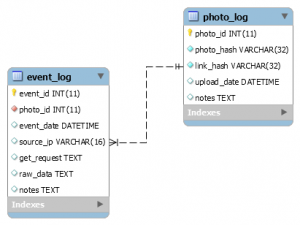 Voyager is a software that implements what is called an invisible bit (aka, a tracking bit), that can be used to track certain activities. Voyager deploys the AWS network infrastructure, and its Data Base, the Relational Database Service (RDS). Voyager has been implemented at CI by a group of Computer Science students, as a Research & Development project for the HTTF. From AWS website:
Voyager is a software that implements what is called an invisible bit (aka, a tracking bit), that can be used to track certain activities. Voyager deploys the AWS network infrastructure, and its Data Base, the Relational Database Service (RDS). Voyager has been implemented at CI by a group of Computer Science students, as a Research & Development project for the HTTF. From AWS website:
Amazon Relational Database Service (Amazon RDS) makes it easy to set up, operate, and scale a relational database in the cloud. It provides cost-efficient and resizable capacity while automating time-consuming administration tasks such as hardware provisioning, database setup, patching and backups. It frees you to focus on your applications so you can give them the fast performance, high availability, security and compatibility they need.
For this project, we are also using the following tools: EC2, S3 and Route 53.
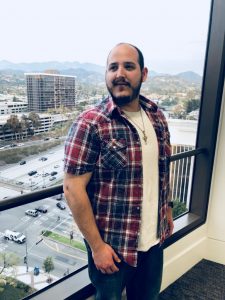 Daniel Vournazos is a Software Engineer for the Android platform at Google; he graduated from CI with a bachelors in CS and Mathematics. He originally got started with Android development through a directed study and capstone under CI Computer Science professor AJ Bieszczad. From there he worked at a local company doing some light Android work until he got a job in Glendale at Mobileforming. There he worked with amazing peers that created an environment for substantial growth, on a variety of Android apps, which helped him with getting hired at Google.
Daniel Vournazos is a Software Engineer for the Android platform at Google; he graduated from CI with a bachelors in CS and Mathematics. He originally got started with Android development through a directed study and capstone under CI Computer Science professor AJ Bieszczad. From there he worked at a local company doing some light Android work until he got a job in Glendale at Mobileforming. There he worked with amazing peers that created an environment for substantial growth, on a variety of Android apps, which helped him with getting hired at Google.
Applicants can contact Keith Brooks, IT Director directly at keith.brooks@oxnard.org or 805-385-7597
Application: oxnard.org/jobs.
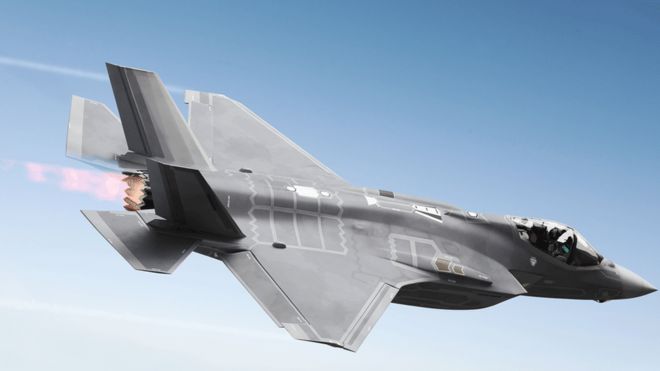 The Government Accountability Office (GAO) found “mission-critical” cyber-vulnerabilities in nearly all weapons systems tested between 2012 and 2017.That includes the newest F-35 jet as well as missile systems.
The Government Accountability Office (GAO) found “mission-critical” cyber-vulnerabilities in nearly all weapons systems tested between 2012 and 2017.That includes the newest F-35 jet as well as missile systems.
Pentagon officials had no immediate response to the 50-page report from the Senate Armed Services Committee.
The committee’s members expressed concerns about how protected weapon systems were against cyber-attacks.
Source: US weapons systems can be ‘easily hacked’ – BBC News